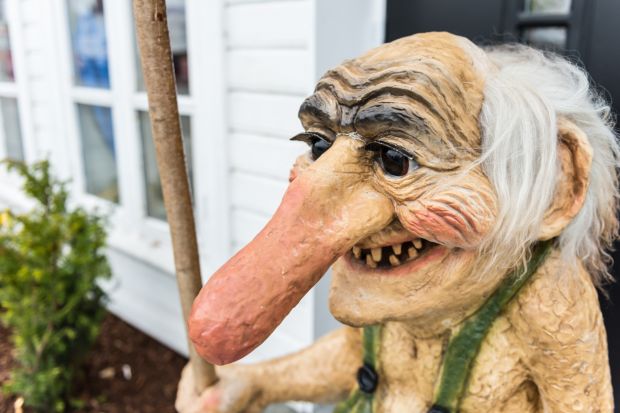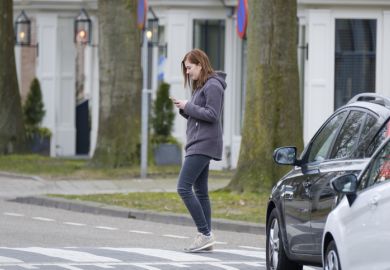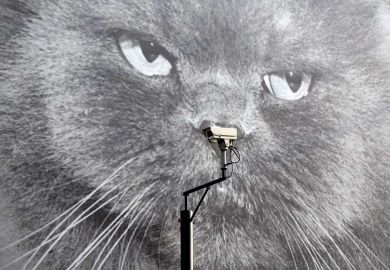My university email account got hacked last week. It happened at 10:00 in the morning. I was still in bed. Thankfully, several colleagues were awake and at their computers. Ten minutes after the attack a phishing email had been reported and my account closed down. Nevertheless, emails purportedly in my name had found their way across the whole university causing annoyance to those who didn’t know me and bewilderment (or merriment) to those who did.
Our IT technicians are patient, extremely good at their jobs and, above all, very kind. “What did l do wrong?” l asked them.
“It is nothing that you did. The bots are very clever – you may have opened a dodgy attachment and it may have been years ago,” they reassured me.
l pictured the university digital support experts reading my emails in order to reconfigure my corrupted account. There were some really nice emails about Virginia Woolf and Sylvia Townsend Warner. Then I had a momentary panic: was there anything that shouldn’t have been there? “No, squeaky clean” I thought, congratulating myself for carefully keeping my work-related and personal accounts separated.
“Oh by the way, there is no official university signature at the bottom of the emails you’ve been sending,” the nice digital support technician told me. “We’ve been asked to remind you,” she said apologetically. “Ah yes, that email signature that l have been struggling to set up, but alas with no success,” I think to myself.
I am an emerita professor these days and enjoy supervising and researching as much as l ever did, but l have been reminded of my need for digital literacy virtually every day since l “retired”. l am a trustee of a local organisation, for example, with a rather good website that someone needs to update. l look pointedly at the floor when this comes up at meetings. I am the only one of us in the room who has no idea how to do this. l am hoping against hope that none of the others will realise this fact. Actually, they all realise it but everyone is much too nice to point it out.
Was it ever thus? No. l, too, was once a “digital champion”. l remember taking to email instantly, recognising its life-transforming communication potential the very first time l was shown it. The joy of being able to send my own academic writing instantly to a friend anywhere in the world!
I also become adept at spreadsheets, something I don’t miss in my soi-disant retirement.
In my work in the community there are things about which l care passionately – like the failure of the number 18 bus to materialise at the stop outside my house to take me to the Cambridge city centre.
Social media is the place for these types of rants these days. So why, when l know that a digital presence is a sine qua non for anyone who wants to be heard beyond their immediate family and friends, do I resist it? Especially when all universities (quite properly) expect digital literacy from both students and staff; when l know that elections are fought and won on Facebook; when influencers reach millions on YouTube; and my own academic monographs reach a few hundred. Why do l hate the very thought of anyone being able to press a “like” or “dislike” button on anything remotely connected with me? My regrets for no longer being a digital champion end here.
The reason, mainly, is internet trolls. Now I am no shrinking violet (sorry, “snowflake”). Yes, l probably could cope with trolling – but only in some circumstances: when l am feeling happy, buoyant, in good health and surrounded by friends. Not when l am feeling depressed, tired, struggling with bereavement, illness and caring responsibilities or with utility companies and household appliances that don’t work. A lot of women l know feel this way.
There was the recent story of the academic whose students alerted her to threats on social media. Her university acknowledged that she was in real and present danger. l read in the newspaper that she was to have security guards in her lectures who will accompany her to the lecture hall and check that she is not being followed. The security guards will also sit at the back until the students see them when they arrive. This is unconscionable; truly and unfathomably awful. After reading the article I realised that this is someone l have actually met.
Trolling can affect the victim’s support network as well. I think of my thoughtful, softly-spoken, sensitive student, for instance, who, as far as l can see, has never done anything to offend anyone and never would. The vitriol she received after posting something online did not just frighten her it frightened both of us. Were the trolls in Cambridge or in Canada? In Norwich or in Nigeria? It spooked me that we didn’t know.
“If Mary Beard can cope with it so can you,” said one well-intentioned friend. She was encouraging me to enter the 21st-century culture wars with what she felt sure would be a new dazzling online presence. Mary Beard? Oh, to be the Cambridge classicist Mary Beard; to be brilliant, confident and indestructible; to have her sharpness of intellect; to be unimaginably wonderful in every possible way. I wish l were Mary Beard. But sadly, l am not.
Throughout my teaching career l kept a box of (usually floral) notelets in my office. There was always a use for them – birthdays, congratulations, new babies, promotions – but more often than not I associate them with sadness and disappointment; with messages of condolence, sympathy and support. l reach for my notelets and carefully begin to compose a few handwritten sentences to my fellow academic who now has bodyguards to protect her against online trolls. This is not the appropriate time for emails – with or without a signature at the bottom. l am trying to remember if the old flowery notelets were really scented with lavender. Or was it Devon violets? But then my memory is nothing like as good as it was.
Mary Joannou is emerita professor of literary history and women’s writing at Anglia Ruskin University.
Register to continue
Why register?
- Registration is free and only takes a moment
- Once registered, you can read 3 articles a month
- Sign up for our newsletter
Subscribe
Or subscribe for unlimited access to:
- Unlimited access to news, views, insights & reviews
- Digital editions
- Digital access to THE’s university and college rankings analysis
Already registered or a current subscriber?




